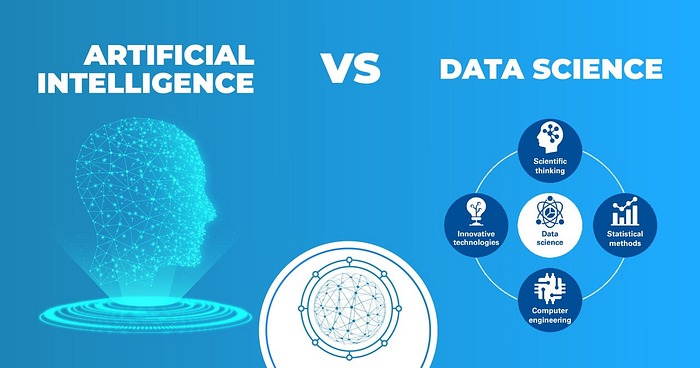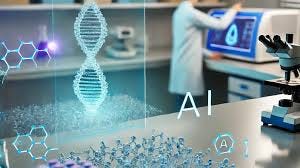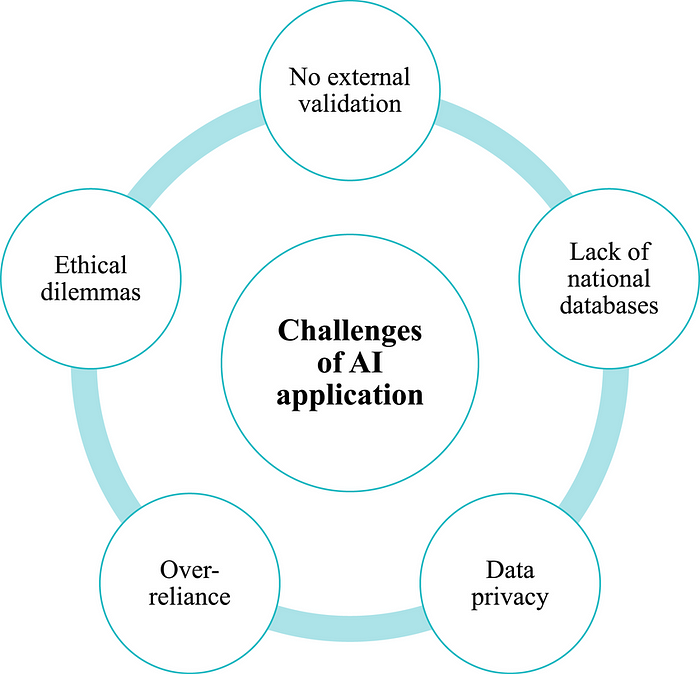The Role of AI in Modern Scientific Research: A Data Science Perspective
- Get link
- X
- Other Apps
The Role of AI in Modern Scientific Research: A Data Science Perspective
Artificial Intelligence (AI) has made significant strides over the past decade, reshaping numerous industries, and scientific research is no exception. Today, AI plays a pivotal role in how researchers tackle complex problems, analyze vast datasets, and derive meaningful insights. This article explores the role of AI in modern scientific research, with a particular focus on data science applications and how they are transforming research methodologies.

AI and Data Science: A Powerful Combination
In the context of scientific research, data science and AI are intertwined. Data science involves collecting, analyzing, and interpreting large volumes of data to extract actionable insights. When combined with AI technologies like machine learning (ML), deep learning (DL), and natural language processing (NLP), data science becomes even more powerful, enabling researchers to unlock patterns and correlations that were previously difficult or impossible to identify.

Key Areas Where AI is Revolutionizing Scientific Research
- Accelerating Data Processing and Analysis Scientific research generates massive amounts of data, especially in fields like genomics, astronomy, and physics. Traditional data analysis methods can be time-consuming and inefficient. AI, however, can automate much of this process, identifying patterns and trends within seconds that would take humans much longer to detect. For example, in genomics, AI algorithms are used to analyze DNA sequences and identify genetic markers associated with diseases.
- Predictive Modeling Predictive modeling, a cornerstone of data science, allows scientists to predict future trends or outcomes based on historical data. In climate research, for example, AI models are used to forecast weather patterns and climate changes with unprecedented accuracy. Similarly, in drug discovery, AI models predict how different compounds may interact with biological systems, speeding up the drug development process.
- Improving Precision in Experiments AI is enhancing the precision of scientific experiments. In the field of physics, AI is helping physicists design experiments that can isolate and measure specific variables with higher accuracy. In chemistry and biology, AI models are optimizing experimental conditions, reducing the need for trial and error and ensuring that experiments yield the most reliable results.
- AI in Medical Research and Healthcare One of the most impactful areas where AI is transforming scientific research is in medical research. Machine learning algorithms are helping identify new drug candidates, improve diagnostic accuracy, and predict patient outcomes. AI models are also being used to analyze medical imaging, such as MRI scans and X-rays, to detect diseases like cancer at an early stage, often before they are visible to the human eye.
- Natural Language Processing (NLP) in Literature Review AI-powered NLP tools are helping researchers navigate the ever-expanding volume of scientific literature. These tools can scan and summarize vast numbers of research papers, enabling scientists to quickly identify key findings, trends, and gaps in existing research. By automating this process, researchers can save time and focus on more critical tasks, such as experimental design or data analysis.
The Benefits of AI in Scientific Research
- Increased Efficiency: AI automates repetitive tasks, allowing researchers to focus on higher-level problem-solving and creative thinking.
- Improved Accuracy: AI models can reduce human error, leading to more precise and reliable results in experiments.
- Enhanced Predictive Capabilities: AI allows researchers to predict future trends, discover new phenomena, and make informed decisions based on data-driven insights.
- Cost Savings: By automating various aspects of the research process, AI can reduce the costs associated with data analysis, experiment design, and even drug discovery.

Challenges of AI in Scientific Research
While AI offers many benefits, its integration into scientific research is not without challenges. Issues such as data privacy, algorithmic bias, and the need for high-quality data are some of the barriers that need to be addressed. Additionally, researchers must be trained to work with AI tools, and the reliance on AI requires transparency and explainability, especially in fields like healthcare where lives are at stake.

Conclusion: The Future of AI in Scientific Research
AI is undeniably transforming scientific research, empowering researchers to solve some of the most pressing challenges of our time. As AI technologies continue to evolve, they will open new avenues for discovery, increase the speed and precision of research, and contribute to the development of innovative solutions across various scientific domains. For those looking to become a part of this AI-driven revolution in research, gaining expertise in data science and AI is a critical step.
If you’re interested in learning more about data science and how AI can be applied to scientific research, consider taking online courses. Visit Naresh IT’s Data Science Online Training Program to get started on your journey to becoming an expert in data science and AI.
FAQs
1. How is AI used in scientific research? AI is used in scientific research for data processing, predictive modeling, improving experiment precision, analyzing medical data, and automating literature reviews. Machine learning algorithms, deep learning, and natural language processing are commonly applied techniques in these fields.
2. What are the benefits of using AI in research? AI increases efficiency, improves accuracy, enhances predictive capabilities, and can reduce costs. It helps researchers automate tasks, identify patterns faster, and make data-driven decisions with greater confidence.
3. What are the challenges of AI in scientific research? Some challenges include data privacy concerns, algorithmic bias, the need for high-quality datasets, and the lack of AI expertise among researchers. Ensuring transparency and explainability, especially in critical fields like healthcare, is also a concern.
4. How can I learn more about AI and data science? If you are looking to deepen your understanding of data science and AI, consider taking specialized online courses. You can start with Naresh IT’s Data Science Online Training Program, which offers comprehensive training to help you master these skills.
- Get link
- X
- Other Apps

Comments
Post a Comment